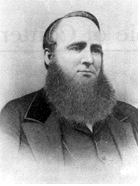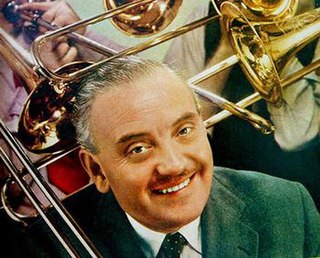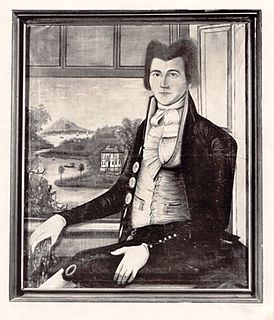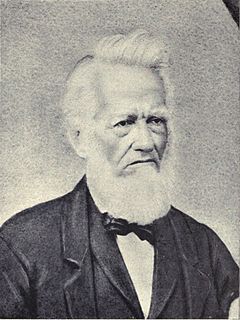
Charles Edward Ives was an American modernist composer, being one of the first American composers of international renown. Previously, his music was largely ignored during his life, and many of his works went unperformed for many years, but later the quality of his music was recognized and he came to be regarded as an "American original". He was also among the first composers to engage in a systematic program of experimental music, with musical techniques including polytonality, polyrhythm, tone clusters, aleatory elements, and quarter tones. His experimentation foreshadowed many musical innovations that were later more widely adopted during the 20th century. Hence, he is often regarded as the leading American composer of art music of the 20th century.

Henry Dixon Cowell was an American composer, music theorist, pianist, teacher, publisher, and impresario. His contribution to the world of music was summed up by Virgil Thomson, writing in the early 1950s:
Henry Cowell's music covers a wider range in both expression and technique than that of any other living composer. His experiments begun three decades ago in rhythm, in harmony, and in instrumental sonorities were considered then by many to be wild. Today they are the Bible of the young and still, to the conservatives, "advanced."... No other composer of our time has produced a body of works so radical and so normal, so penetrating and so comprehensive. Add to this massive production his long and influential career as a pedagogue, and Henry Cowell's achievement becomes impressive indeed. There is no other quite like it. To be both fecund and right is given to few.

Grafton County is a county in the U.S. state of New Hampshire. As of the 2010 census, the population was 89,118. Its county seat is North Haverhill, a village within the town of Haverhill. Until 1972, the county courthouse and other offices were in downtown Woodsville, a larger village within the town of Haverhill.

Monroe is a town in Grafton County, New Hampshire, United States. The population was 788 at the 2010 census. The town is located along a bend of the Connecticut River, across from Barnet, Vermont. It was originally chartered as part of Lyman.

Littleton is a town in Grafton County, New Hampshire, United States. The population was 5,928 at the 2010 census. Situated at the northern edge of the White Mountains, Littleton is bounded on the northwest by the Connecticut River.

Julian Alden Weir was an American impressionist painter and member of the Cos Cob Art Colony near Greenwich, Connecticut. Weir was also one of the founding members of "The Ten", a loosely allied group of American artists dissatisfied with professional art organizations, who banded together in 1898 to exhibit their works as a stylistically unified group.

James Edward Heath, nicknamed Little Bird, is an American jazz saxophonist, composer, arranger and big band leader. He is the brother of bassist Percy Heath and drummer Albert Heath.

Amasa Mason Lyman was an early leader in the Latter Day Saint movement and was an apostle. He was also a counselor in the First Presidency to Joseph Smith.
Alf Heiberg Clausen is an American film and television composer. He is best known for his work scoring many episodes of The Simpsons, of which he had been the sole composer between 1990 and 2017. Clausen has scored or orchestrated music for more than 30 films and television shows, including Moonlighting, The Naked Gun, ALF and Ferris Bueller's Day Off. Clausen received an Honorary Doctorate of Music from the prestigious Berklee College of Music in 1996.

George Edward "Ted" Heath was an English musician and big band leader.

William Lyman was an American politician from Northampton, Massachusetts who served in the United States House of Representatives.
Marland Pratt Billings was an American structural geologist who was considered one of the greatest authorities on North American geology. Billings was Professor of Geology at Harvard University for almost his entire career, having joined the faculty in 1930 and retired to emeritus status in 1972. He also taught for a brief time at Bryn Mawr College.

Harvey Littleton was an American glass artist and educator. Born in Corning, New York, he grew up in the shadow of Corning Glass Works, where his father headed Research and Development during the 1930s. Expected by his father to enter the field of physics, Littleton instead chose a career in art, gaining recognition first as a ceramist and later as a glassblower and sculptor in glass. In the latter capacity he was very influential, organizing the first glassblowing seminar aimed at the studio artist in 1962, on the grounds of the Toledo Museum of Art. Imbued with the prevailing view at the time that glassblowing could only be done on the factory floor, separated from the designer at his desk, Littleton aimed to put it within the reach of the individual studio artist.

Samuel Atkins Eliot was a member of the notable Eliot Family of Boston, Massachusetts who served in political positions at the local, state and national levels.

Henry Adams Bellows (1803–1873) was a lawyer, state legislator, and jurist born in Walpole, New Hampshire October 25, 1803 to Joseph and Mary (Adams) Bellows. He was educated at the academy at Windsor, Vermont. He taught school in Walpole and studied law under William C. Bradley, being admitted to the bar in 1826. He practiced in Littleton, New Hampshire from 1828 to 1850, moving to Concord, New Hampshire. He was elected to the New Hampshire House of Representatives from Littleton in 1839. He was subsequently elected again to the House from Concord in 1856–1857, and served as Chairman of the Judiciary Committee. On 23 September 1859 he was appointed associate justice to the New Hampshire Supreme Court, where he served as a justice from 1859 to 1869 and Chief Justice from 1869 until his death on March 11, 1873.

Oliver Lyman Spaulding was a soldier and politician from the U.S. state of Michigan.
Brookfield Community School is a large state-funded secondary school located in the Locks Heath ward of the Borough of Fareham. Brookfield serves 5 feeder schools in the local area. Brookfield is one of the largest co-educational, comprehensive secondary schools in Hampshire, the school currently has approximately 1800 students on-roll, there are approximately 120 teachers employed at the school. The school teaches years 11 to 16.

Timothy Swan (1758–1842) was a composer and hatmaker born in Worcester, Massachusetts, USA. The son of goldsmith William Swan, Swan lived in small towns along the Connecticut River in Connecticut and Massachusetts for most of his life. Swan's compositional output consisted mostly of psalm and hymn settings, referred to as psalmody. These tunes and settings were produced for choirs and singing schools located in Congregationalist communities of New England. Swan is unique as an early American composer in that he composed secular vocal duets and songs in addition to sacred tunebook music. The tunebook, New England Harmony is a collection of his sacred music compositions, while The Songster's Assistant is a collection of his secular music. Swan was also a poet and teacher of singing.

Joseph Philbrick Webster, also known as J.P. Webster, was an American songwriter and composer most notable for his musical compositions during the Antebellum and American Civil War periods of United States history, and his post-war hymns.

David Belden Lyman was an early American missionary to Hawaii who opened a boarding school for Hawaiians. His wife Sarah Joiner Lyman (1805–1885) taught at the boarding school and kept an important journal. They had several notable descendants.



















